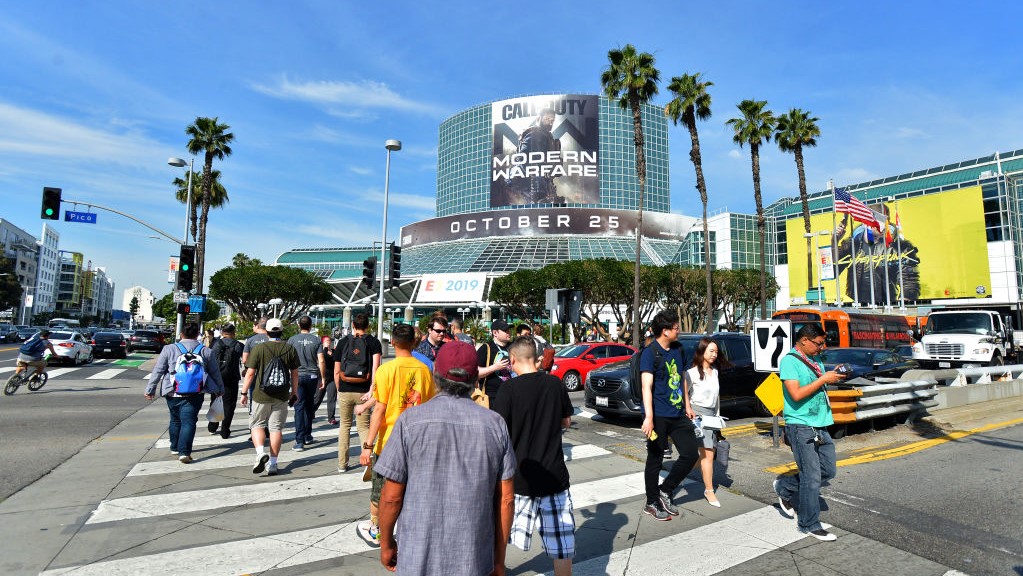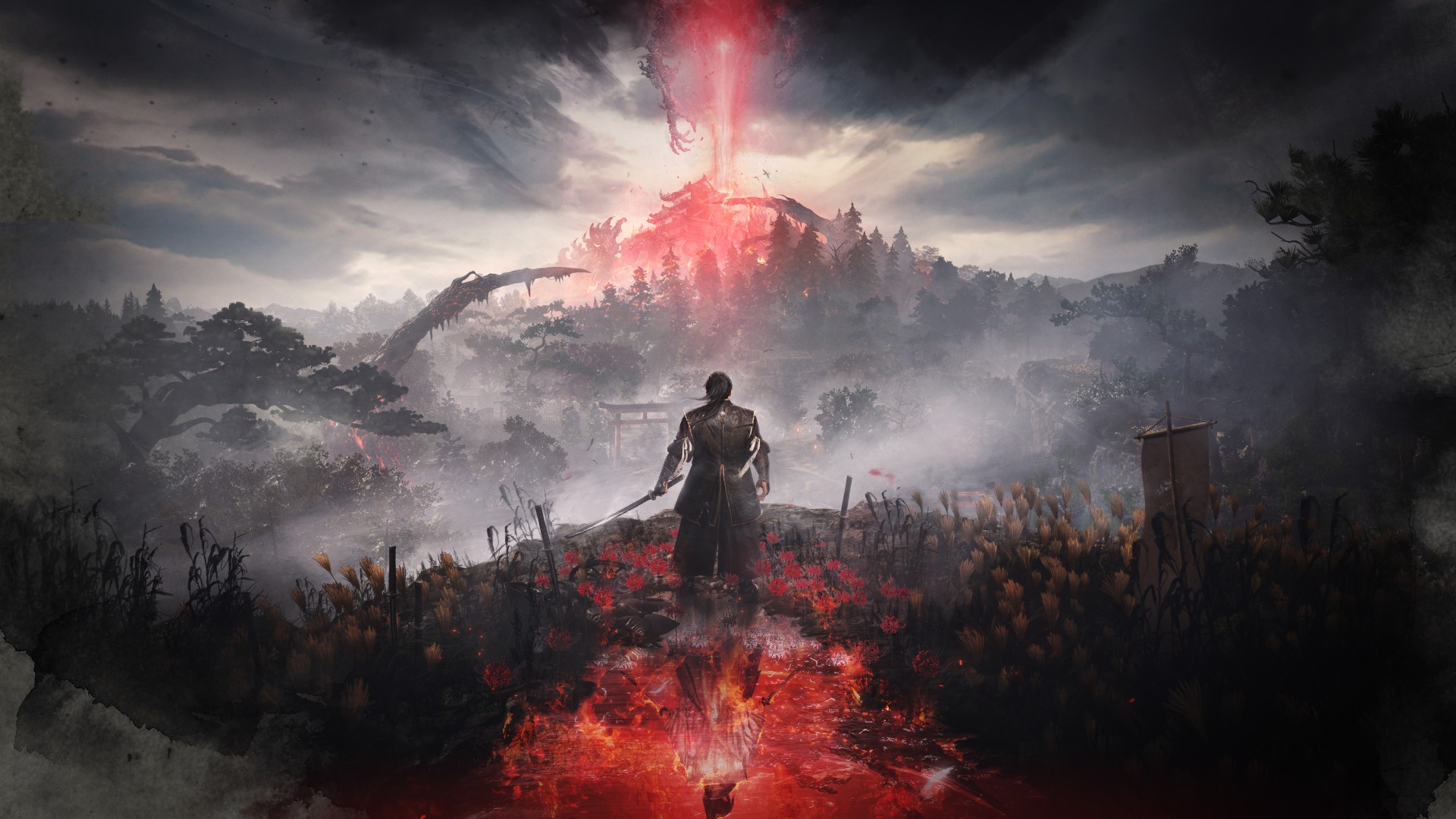This Summer Game Fest showcase really brought it home: The idea of E3 died with E3
You never know what you got till it's gone.

Keep up to date with the most important stories and the best deals, as picked by the PC Gamer team.
You are now subscribed
Your newsletter sign-up was successful
Want to add more newsletters?

Every Friday
GamesRadar+
Your weekly update on everything you could ever want to know about the games you already love, games we know you're going to love in the near future, and tales from the communities that surround them.

Every Thursday
GTA 6 O'clock
Our special GTA 6 newsletter, with breaking news, insider info, and rumor analysis from the award-winning GTA 6 O'clock experts.

Every Friday
Knowledge
From the creators of Edge: A weekly videogame industry newsletter with analysis from expert writers, guidance from professionals, and insight into what's on the horizon.

Every Thursday
The Setup
Hardware nerds unite, sign up to our free tech newsletter for a weekly digest of the hottest new tech, the latest gadgets on the test bench, and much more.

Every Wednesday
Switch 2 Spotlight
Sign up to our new Switch 2 newsletter, where we bring you the latest talking points on Nintendo's new console each week, bring you up to date on the news, and recommend what games to play.

Every Saturday
The Watchlist
Subscribe for a weekly digest of the movie and TV news that matters, direct to your inbox. From first-look trailers, interviews, reviews and explainers, we've got you covered.

Once a month
SFX
Get sneak previews, exclusive competitions and details of special events each month!
Like many of you, I watched the Summer Game Fest showcase today. At the end, host and SGF creator Geoff Keighley began announcing the big reveal and I rose from my torpor in a brief haze of excitement. Hideo Kojima, some Death Stranding 2 footage? Oh he's mentioned RPGs... FromSoftware? Elden Ring DLC trailer?!?
No. It was something that doubtless excites many, a new trailer for Final Fantasy 7 Remake Part 2, but I am an absolutely ancient and wise being that knows a better version of that game already came out in 1997. FF7 remake was hardly the issue here though.
There is an important caveat about Summer Game Fest, which is that the narrative that it "killed" E3 or is going to replace E3 is a false one. E3 was killed by a lack of industry support, and probably some poor management decisions on the way there. Putting on something of the scale of E3, a physical event held in the Los Angeles convention centre for days, requires a lot of publishers to put up a lot of money. Don't look at Geoff Keighley when wondering why E3's gone. Look at E3, and look at the games industry and their preference for self-contained broadcast showcases over live events.
Nevertheless, the E3 period remains, and Keighley himself has tried to brand the various showcases as part of an overall Summer Game Fest. By that logic the Summer Game Fest period (I'm still not committing, Geoff) would incorporate things like last month's PlayStation showcase, the Xbox showcase, Starfield showcase, PC Gaming Show, Ubisoft showcase, Capcom showcase, and the Day of the Devs and Devolver Direct stream, as well as others. So there will definitely be bigger megatons than a FF7 Remake trailer. But it still isn't the same.
Over the pandemic years it was obvious why E3 wasn't happening, and we dealt with these digital substitutes in all aspects of our lives. There was the expectation E3 would return at some point, with all the ineffable qualities an in-person event where the giants rub shoulders bring. Now it's clear that's not going to happen, and watching tonight's Summer Game Fest showcase really brought home to me what we've lost.
Everything at SGF was something that would have been at a hypothetical "E3 2023" anyway, and ultimately you have to work with whatever's out there, so I'm not knocking the effort. But as the showcase named for the Summer Game Fest period we're supposed to be in, this felt almost tacky at parts like the Taco Bell delivery segment. The names were big, with the likes of Prince of Persia, Sonic, Yakuza, and Final Fantasy represented, but it felt like publishers were offering up the side projects while keeping the real meat for their own or a platform-holder's showcase.
When Nicolas Cage rocking up to talk about nothing is probably the most exciting element of a videogames show, I think you're in trouble. This all felt not just small but inconsequential. If these things are where you're supposed to see the future of games, I'm not sure I ever felt like that tonight.
Keep up to date with the most important stories and the best deals, as picked by the PC Gamer team.
It's something of a US industry failure to have let E3 die so easily. Japan still has Tokyo Game Show. Europe still has GamesCom. And they both still get big announcements and that buzz of getting a chunk of the industry together. I wonder whether the industry's making the same mistake it did with E3. If that's gone, and SGF is the thing to replace it, and we're all supposed to get excited about SGF now... well, Geoff Keighley needs better support than that.
As for E3 itself, though: That died with E3, and I don't think the US games industry is capable of truly replacing it. I'm sad that, at least for now, livestreams from rooms with small crowds interspersed with QR ads are our post-E3 future.

Rich is a games journalist with 15 years' experience, beginning his career on Edge magazine before working for a wide range of outlets, including Ars Technica, Eurogamer, GamesRadar+, Gamespot, the Guardian, IGN, the New Statesman, Polygon, and Vice. He was the editor of Kotaku UK, the UK arm of Kotaku, for three years before joining PC Gamer. He is the author of a Brief History of Video Games, a full history of the medium, which the Midwest Book Review described as "[a] must-read for serious minded game historians and curious video game connoisseurs alike."

